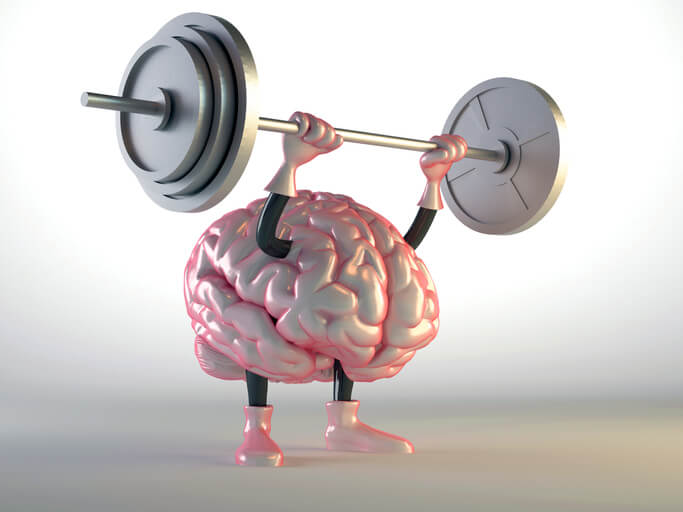
Exercise Matters. Especially For Your Brain’s “Gray Matter”
By Joy Stephenson-Laws, JD, Founder
Like many people, your New Year’s resolution may be to exercise more. It’s great if your motivation stems from wanting to lose a few pounds and look good in your swimsuit or what have you, but I think it can be even more motivating and empowering if you are aware of what exercise may do for your health.
Regularly moving your body may reduce your risk of developing certain types of cancer (including prostate cancer), help with fertility issues, reduce the risk of diabetes and help better manage it if you have it, reduce the risk of heart disease, help you sleep better, build stronger bones, fight depression and more.
Now if you need even more motivation, a recent study found evidence which suggested that cardiorespiratory exercise, which includes exercises such as walking, running, biking and basically anything that gets your heart pumping, helps delay cognitive decline and aging of the brain.
It’s first important to understand a few things about the brain. As you may already know, it essentially controls everything.
“The brain is an important organ that controls thought, memory, emotion, touch, motor skills, vision, breathing, temperature, hunger, and every process that regulates our body,” (John Hopkins Medicine).
Our brains have about 86 billion nerve cells (neurons), and these neurons are called “gray matter.” We also have “white matter” in our brains that consists of billions of nerve fibers (called axons and dendrites).
So the study found that exercising may increase gray matter volume. And this is a good thing, because, “The volume of gray matter appears to correlate with various skills and cognitive abilities,” according to one report discussing the study.
“The researchers found that increases in peak oxygen uptake are strongly associated with increased gray matter volume.”
If you are blessed enough to grow old, some brain aging and shrinkage is inevitable. Gray matter of the brain decreases with age, but it appears that we can be proactive in delaying this by exercising.
“The study's finding of higher gray matter volume associated with cardiorespiratory exercise are in brain regions clinically relevant for cognitive changes in aging, including some involved in Alzheimer's disease,” according to the report discussing the study.
This is huge considering Alzheimer’s disease, a devastating type of dementia, affects millions of Americans.
As the number of older Americans grows rapidly, so too will the number of new and existing cases of Alzheimer's. By 2050, the number of people age 65 and older with Alzheimer’s dementia may grow to a projected 13.8 million, according to the Alzheimer’s Association.
So get moving!
But first be aware of the nutrients you need to in order to properly fuel your body for working out as well as help your body recover post exercise. And ladies, read here for three nutrients you may need for exercise.
For additional tips on how to get more exercise into your daily life, click here. Along with eating healthily and making sure you are getting the nutrients necessary for physical activity, it is imperative to maintain nutritional balance. So many of us, especially as we get older and our bodies are less efficient at absorbing the nutrients from the foods we eat, suffer from nutritional imbalances and deficiencies.
Schedule routine nutrient tests in order to identify any nutrient imbalances or deficiencies you may have. If the test reveals you have too much or too little of a certain nutrient, a competent healthcare professional can work with you on making the necessary dietary changes and recommend quality supplements if necessary.
Taking advantage of IV vitamin drips or injections is also a great way to avoid nutritional issues.
I take advantage of these drips at the pH Drip Lab on a monthly basis to boost my immune system and address my inevitable nutrient absorption issues with vitamin C. At the pH Drip Lab, we offer all sorts of vitamin “cocktails.” My go-to is the “Pick Me Up Buttercup,” which is an injection of 1,000 mg of vitamin C. I believe this has successfully boosted my immunity, energy and good health.
Don’t forget to treat yourself.
Exercising can be fun, but it is hard work. And you deserve to reward yourself (not with sweets!). Cryotherapy is a great way to help your body recover, boost your immunity, make you sleep better and may even help prevent systemic inflammation that can affect the brain.
Enjoy your healthy life!
The pH professional health care team includes recognized experts from a variety of health care and related disciplines, including physicians, attorneys, nutritionists, nurses and certified fitness instructors. This team also includes the members of the pH Medical Advisory Board, which constantly monitors all pH programs, products and services. To learn more about the pH Medical Advisory Board, click here.







